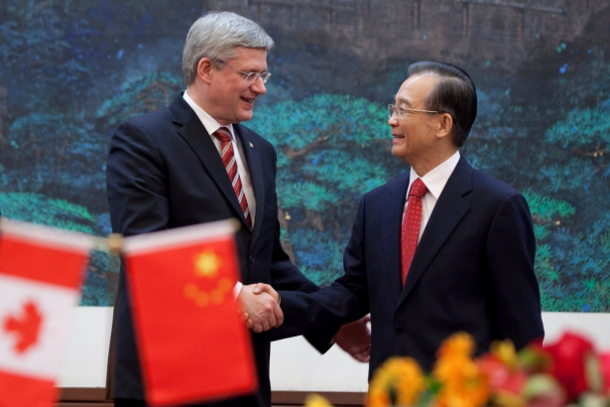A small B.C. First Nation's duty-to-consult legal challenge of the Canada-China foreign investment promotion and protection agreement (FIPA) has been dismissed with costs for a second time, a few months after the Harper government brought the FIPA into force.
The Federal Court of Appeal delivered its 41-page reasons for judgment against the Hupacasath on Friday, upholding the August 2013 federal court decision by Justice Paul S. Crampton.
"The Federal Court's overall conclusions -- that the appellant had not established a causal relationship between the effects of the foreign investment promotion and protection agreement upon the appellant and its asserted rights and interests and that any effects upon the appellant were 'non-appreciable" and 'speculative' -- were predominantly factual in nature and deserve deference. These conclusions were amply supported by the evidentiary record," the judgment says.
"Accordingly, Canada did not have to consult with the appellant before entering into the foreign investment promotion and protection agreement. Therefore, I would dismiss the appeal with costs."
Leadnow, a group that helped fundraise for the legal challenge, reported after the initial ruling that the government had asked for over $100,000 in costs for its legal team and expert witnesses.
Mark Underhill, whose firm -- Underhill, Boies Parker -- represented the Hupacasath, told iPolitics a bill of costs from the court of appeal is expected in the next few weeks.
But he added that no decision has been made yet on whether to take the case all the way to the Supreme Court, something that should be decided by the end of the week.
Fight over?
This judgment, then, may put an end to a prolonged period of opposition to the agreement that escalated across the country, particularly in op-ed pages, in the months that followed its signing in September 2012.
Often citing the criticism of York University investment law professor Gus Van Harten, the NDP and Green Party repeatedly stated their opposition to the FIPA, with NDP trade critic Don Davies tabling a motion to scrap the agreement in April 2013.
The Liberals joined the government in voting down the motion.
More than two years after the agreement was signed, with pressure from the Chinese mounting, on Oct. 1 the Harper government ratified it despite the outstanding Hupacasath appeal decision.
A month later, Prime Minister Stephen Harper visited China for the third time. ![]()
Read more: Indigenous, Rights + Justice, Politics, Federal Politics















Tyee Commenting Guidelines
Comments that violate guidelines risk being deleted, and violations may result in a temporary or permanent user ban. Maintain the spirit of good conversation to stay in the discussion.
*Please note The Tyee is not a forum for spreading misinformation about COVID-19, denying its existence or minimizing its risk to public health.
Do:
Do not: